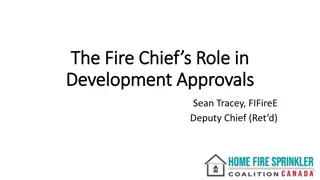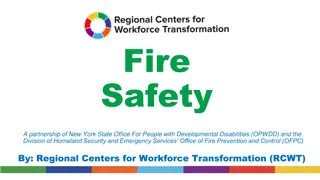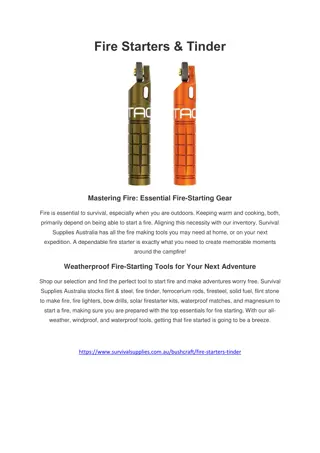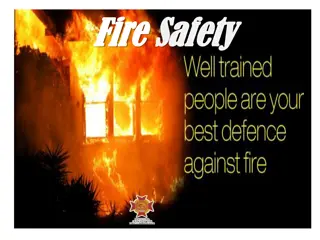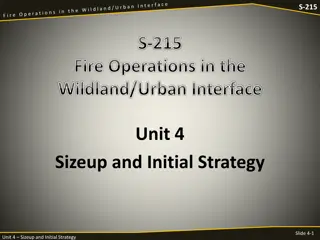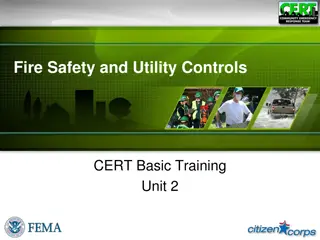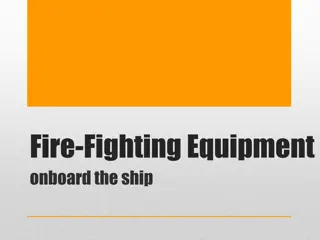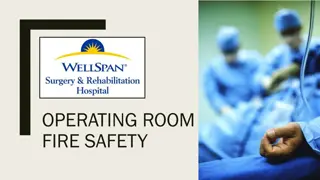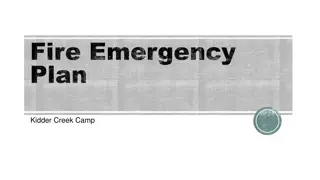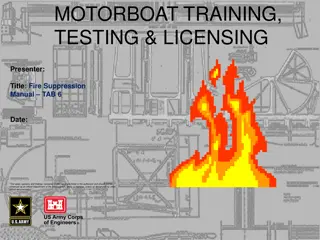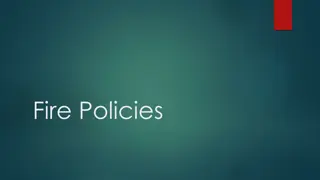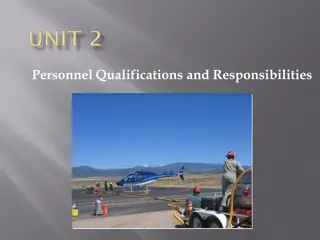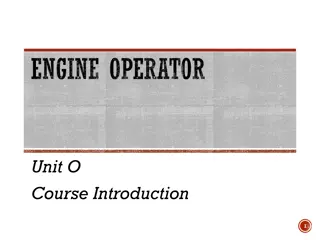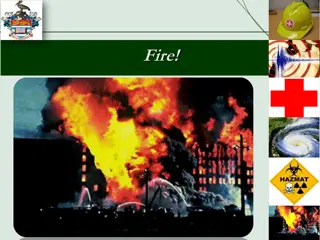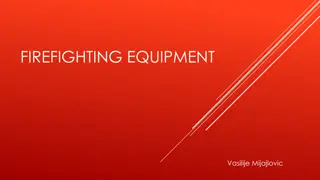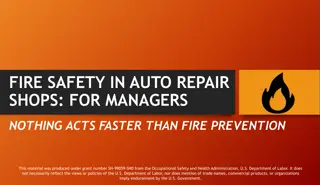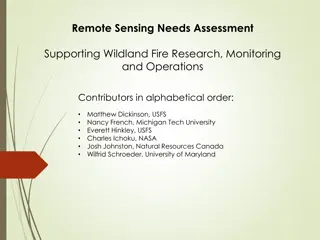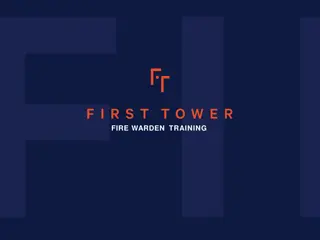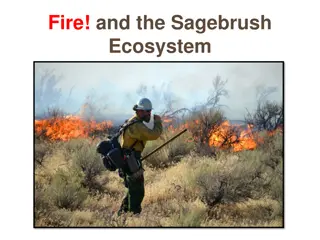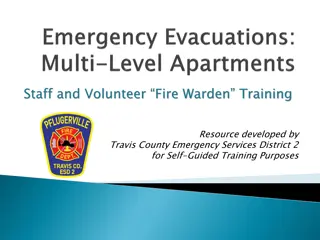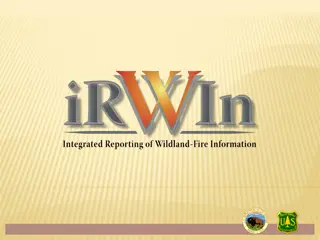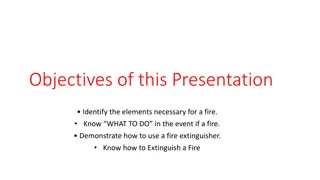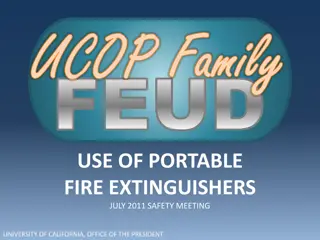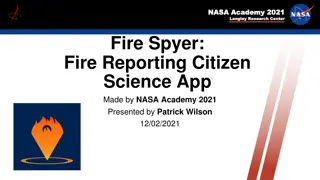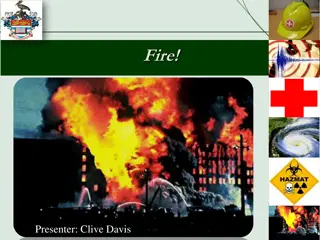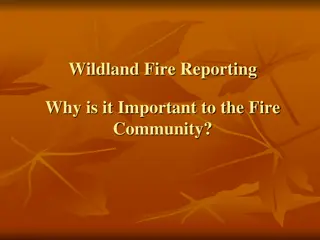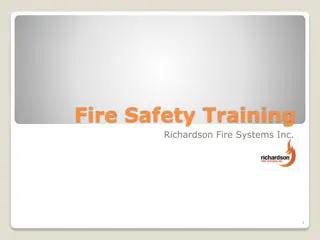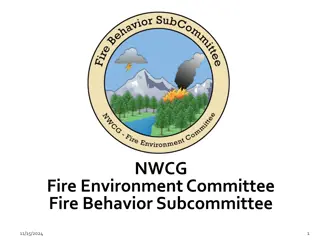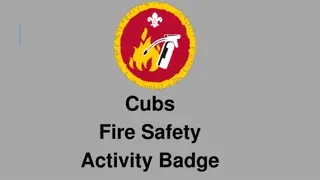Inside Salt Lake City Fire Department: Meet Captain Allen and Crew 11C
Salt Lake City Fire Department is a well-equipped department with 14 fire stations and a dedicated team led by Chief Karl Lieb. Fire Station 11, serving areas including the airport and Pacific Heritage Academy, houses Captain Allen and Crew 11C who are part of the department's educational partnershi
0 views • 25 slides
Wildland Fire Overview in Canada: 2023 Season Update
Wildland fires in Canada are becoming increasingly severe due to climate change, with a high risk to Indigenous communities. The 2023 season has seen a significant increase in the area burned, with active fires posing risks to remote areas. National efforts are in place to manage these fires, with a
0 views • 14 slides
The Fire Chief's Role in Development Approvals and Community Risk Reduction
Exploring the crucial role of fire chiefs in development approvals, highlighting the significance of assessing adequate firefighting resources, water supplies, and fire protection measures as outlined in building codes. Additionally, emphasis is placed on best practices compiled in a handbook for fi
3 views • 19 slides
Fire Safety Training for Developmental Disabilities Support Professionals
A comprehensive training partnership between the New York State Office for People with Developmental Disabilities (OPWDD) and the Division of Homeland Security and Emergency Services Office of Fire Prevention and Control (OFPC) focusing on fire safety. The course covers understanding the effects of
3 views • 38 slides
Los Angeles City Fire Department Brush Clearance Unit Operations Overview
The Los Angeles City Fire Department's Brush Clearance Unit is responsible for inspecting properties in the Very High Fire Hazard Severity Zone to ensure compliance with fire codes. With a team of inspectors and additional labor, they conduct inspections, send out notifications, handle non-complianc
1 views • 19 slides
Tensions in UK Fire Prevention: Transactional vs. Relational Approaches
Exploring the tensions between transactional and relational approaches in UK fire prevention, this presentation shares insights from a case study at Nottinghamshire Fire and Rescue Service. Seeking feedback on relevant literature, it delves into the NFCC Person-Centred Framework, literature on fire
3 views • 16 slides
Understanding Passive Fire Protection in Buildings
Learn about the fundamentals of fire doors, passive fire protection, and the legal obligations surrounding fire safety in buildings. Discover the importance of compartmentation, fire door inspection, and implementation strategies within organizations. Gain insights into the role of passive fire prot
4 views • 39 slides
Fire Starters & Tinder Mastering Fire: Essential Fire-Starting Gear
Fire is essential to survival, especially when you are outdoors. Keeping warm and cooking, both, primarily depend on being able to start a fire. Aligning this necessity with our inventory, Survival Supplies Australia has all the fire making tools you may need at home, or on your next expedition. A d
0 views • 1 slides
Importance of Fire Safety Education in Preventing Home Fires
Attitudes and education play a crucial role in shaping people's perceptions of fire safety. Many individuals overlook the importance of fire safety, assuming it won't happen to them. However, the reality is that fires can occur quickly, especially with modern home construction materials. This emphas
0 views • 16 slides
Wildland/Urban Interface Fire Operations: Unit 4 Sizeup and Initial Strategy
Exploring the critical aspects of sizing up an interface fire, developing initial strategies, and executing operations during an emerging interface incident. Key areas include information gathering en route and on scene, incident priorities, and public contacts for effective response.
2 views • 15 slides
CERT Basic Training for Fire Safety and Utility Controls
Learn the essential skills and knowledge for Community Emergency Response Team (CERT) members in Unit 2 of Basic Training. Explore topics such as fire chemistry, hazard identification, fire suppression techniques, and reducing electrical hazards. Discover the role of CERTs in fire safety, priorities
0 views • 33 slides
Essential Fire Fighting Equipment Onboard Ships
Ships are equipped with essential fire-fighting equipment such as fire pumps, hydrants, hoses, extinguishers, and more. Fire pumps play a crucial role in supplying water at high pressure to the sprinkler system. Fire hydrants provide access to water for firefighting, while fire extinguishers are use
0 views • 7 slides
Operating Room Fire Safety Guidelines
Response to operating room fires should be immediate. It is a shared responsibility of the surgical team to prevent fires by conducting annual fire safety education, following evacuation policies, and assessing fire risks in the OR. The AORN Fire Triangle highlights the elements necessary for a fire
1 views • 21 slides
Wildland Fire Emergency Preparedness at Kidder Creek Camp
Detailed preparation, consultation with Cal Fire, fire simulations, and robust planning efforts have been undertaken to ensure the safety and evacuation readiness of Kidder Creek Camp in the event of a wildland fire emergency. Various resources and consultations have been utilized, and simulations r
0 views • 34 slides
Fire Suppression Training Manual for Motorboat Licensing
This manual covers essential information on fire suppression for motorboat training, testing, and licensing. It outlines fire classes, fuel sources, procedures for handling boat fires, legal requirements for fire extinguishers, and more. The manual also details the types of extinguishing agents, fir
0 views • 15 slides
Understanding Fire Risks and Policies in Insurance Industry
This content provides valuable insights into fire insurance policies, the All India Fire Tariff, and the various perils covered under fire insurance. It explains the key features, exclusions, and applicability of fire insurance in different scenarios, helping readers understand the importance of mit
2 views • 39 slides
Wildland Fire Personnel Qualifications and Responsibilities
Understand the roles and requirements for personnel involved in prescribed and wildland fire operations, including qualifications, training, and certifications. Various positions such as Burn Boss, Helitorch Manager, and Helicopter Manager play crucial roles in ensuring safety and operational effici
3 views • 33 slides
Wildland Fire Engine Operator Course Overview
This course covers the essential aspects of being a Wildland Fire Engine Operator, including vehicle and pump maintenance, fire management operations, safety standards, and more. Students will learn how to perform maintenance procedures, document issues accurately, identify tasks during fire operati
0 views • 21 slides
Comprehensive Guide to Fire Safety Measures and Prevention Tips
This detailed guide covers essential aspects of fire safety, including theory of fire, classes of fire, prevention tips, detection and alarm systems, fire suppression methods, types of extinguishers, and more. Learn about different classes of fires, prevention measures like using designated areas fo
0 views • 22 slides
Essential Firefighting Equipment on Ships
Shipboard fires are a significant risk due to high temperatures and flammable materials. To prevent and combat fires effectively, ships are equipped with fire retardant bulkheads, fire doors, fire dampers, fire pumps, fire main piping and valves, as well as fire hose and nozzles. These essential fir
0 views • 18 slides
vFireLib: Forest Fire Simulation Library on GPU
Dive into Jessica Smith's thesis defense on vFireLib, a forest fire simulation library implemented on the GPU. The research focuses on real-time GPU-based wildfire simulation for effective and safe wildfire suppression efforts, aiming to reduce costs and mitigate loss of habitat, property, and life.
0 views • 95 slides
Fire Safety in Auto Repair Shops: Prevention and Preparedness
Auto repair shops face high fire risks due to the presence of flammable materials like volatile organic compounds. This material provides guidance on fire prevention plans, communication, training, fire suppression systems, emergency action plans, and identifying/mitigating fire hazards. Learn from
0 views • 32 slides
Advancing Wildland Firefighting Technology in USFS: Challenges and Opportunities
Addressing last mile connectivity challenges, emphasizing partnerships, establishing a common operating picture hub, and enhancing real-time decision support are crucial for improving wildland firefighting technology within the USFS. The need for seamless integration of various technological options
0 views • 7 slides
Remote Sensing Needs Assessment for Wildland Fire Research
Contributors from various institutions are collaborating to identify and improve remote sensing products to support wildland fire operations, monitoring, and research. Existing and prospective products along with their limitations are explored in phases such as pre-fire, active fire, and post-fire.
0 views • 17 slides
TFRSAC Day 2 Meeting Overview & Objectives
The 35th Tactical Fire Remote Sensing Advisory Committee (TFRSAC) meeting hosted by USDA Forest Service and NASA focuses on advancing wildland management practices and enhancing fire observation capabilities. The agenda includes sessions on AI/ML in support of wildfire management, wildfire decision
0 views • 6 slides
Retirement Home Fire Safety Incident Report
A retirement home regulated under the Retirement Home Act, 2010 experienced a fire safety incident involving smoke alarms and evacuation procedures. The fire safety plan, approved in 2012, is under review. During a fire drill in 2014, a tenant failed to notify staff, resulting in a delayed response.
0 views • 20 slides
Fire Safety Training and High-Rise Building Facts
Fire safety training covers essential topics like fire alarms, fire warden roles, evacuation procedures, and more. High-rise building facts include features like full sprinkler systems, security measures, and fire separation. Understanding fire alarm causes, responses, and evacuation protocols are c
0 views • 31 slides
Thermal Working Group Update and Programs Overview
The Thermal Working Group (TWG) acts as a coordinating body to facilitate the development, integration, and dissemination of thermal data for civil users. This group is focused on enhancing the capabilities of systems like Hawkeye, which provides near real-time wildland fire alerts to various agenci
0 views • 10 slides
Exploring Fire and the Sagebrush Ecosystem
Delve into the dynamics of fire in the sagebrush ecosystem, where fire can spread rapidly, impacting both the landscape and wildlife. Learn about fire management strategies, the role of wildland firefighters, and efforts to create fire-adapted communities. Discover the importance of restoration in m
0 views • 12 slides
Comprehensive Fire Warden Training Guide
Comprehensive fire warden training guide developed by Travis County Emergency Services District 2 for self-guided training purposes. Covers the importance of emergency evac plans, fire dangers and characteristics, fire safety systems, volunteer fire warden functions, and more. Emphasizes the importa
0 views • 13 slides
Advancing Wildland Fire Information Technology with IRWIN Development
IRWIN (Integrated Reporting of Wildland Fire Information) is a system designed to streamline data entry, enhance data consistency, and provide authoritative operational data for managing wildland fires. It emphasizes interoperable solutions, reducing complexity for users. Special focus areas include
0 views • 14 slides
Understanding Fire: Elements, Extinguishing Methods, and Safety Measures
Explore the essential elements for a fire to exist, learn about the Fire Triangle, understand the classes of fires, and know which fire extinguisher types are suitable for different fuel sources. Discover practical steps to take in case of a fire emergency and how to safely operate a fire extinguish
0 views • 11 slides
Portable Fire Extinguisher Training and Guidelines
Annual portable fire extinguisher training is mandatory to comply with Cal/OSHA regulations. The training covers general principles of fire extinguisher use, when to use a portable fire extinguisher, and examples of different types of fires (Type A, B, C). It also outlines conditions when using a fi
0 views • 21 slides
Feedback Analysis on Medication Incident Reporting in Hospitals
Feedback received from IMSN members on NIMS and incident reporting revealed various issues affecting the rates at which staff report medication incidents/near misses within hospitals. Major themes included staffing numbers and turnover, pharmacist involvement in incident reporting, clinical pharmacy
0 views • 12 slides
Enhancing Wildfire Response with Fire Spyer: A NASA Academy Innovation
Fire Spyer, developed by NASA Academy 2021 at Langley Research Center, is a cutting-edge citizen science app that revolutionizes fire reporting and monitoring. It addresses issues in current methods by providing real-time data collection, streamlined reporting, and integration with existing systems.
0 views • 7 slides
Fire Safety Presentation by Clive Davis - Tips, Prevention, and Equipment Overview
Enhance your fire safety knowledge with Clive Davis' comprehensive presentation covering fire prevention tips, classes of fire, detection and alarm systems, suppression equipment, and various types of fire extinguishers. Learn about fire safety measures, prevention techniques, and essential protocol
0 views • 23 slides
Importance of Wildland Fire Reporting to the Fire Community
Wildland fire reporting plays a critical role in providing accurate data for effective fire management. Defined state fires and challenges in reporting impact funding, risk management, and agency support. Comprehensive reporting like the Wildland Fire Occurrence Reporting for Massachusetts is essent
0 views • 6 slides
Fire Safety Training and Implementation Guidelines
This document outlines the responsibilities and duties of various staff members, including fire safety training, fire warden roles, and the implementation of a fire safety plan. It emphasizes the importance of knowing and understanding the fire safety plan, participating in fire drills, and maintain
0 views • 29 slides
National Wildland Fire Committee Stewardship Leadership
Providing stewardship, leadership, guidance, and advocacy for interagency efforts in establishing and maintaining consistent nationwide standards for wildland fire behavior assessment. The committee members include key representatives such as Tami Parkinson, Kyle Cannon, Tara Umphries, Dr. Bil Graue
0 views • 16 slides
Fire Safety Tips for Cubs and Families
Explore essential fire safety activities for Cubs, including earning badges, virtual fire station tours, practicing fire drills, planning escape routes, maintaining smoke detectors, identifying potential home dangers, and learning safety rules for fire incidents. Encourage a proactive approach to fi
0 views • 15 slides


